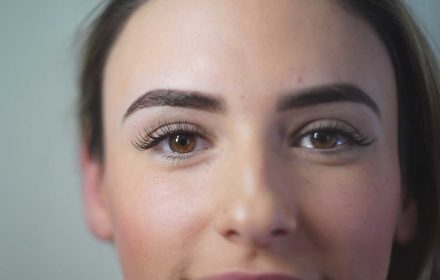Allergic Reactions to Eyelash Extensions
Properly applied lash extensions shouldn’t be painful or uncomfortable to wear. If they are, something is probably wrong.
It’s possible to have or develop an allergy to eyelash extensions or, more commonly, an allergy to the glue used to attach the extensions. Genuine reactions tend to be rare but can develop out of nowhere, just like other allergies. That’s why it’s important to understand the difference between temporary irritation and symptoms of an allergy. Here’s what to look out for.
Note: this content isn’t intended to substitute professional medical advice, diagnosis or treatment. Always seek the advice of your physician or other qualified healthcare professional if you have questions about your health.
Symptoms of an allergic reaction to lash extensions
Allergic reactions tend to happen within the first three days (72 hours) of
Allergic reactions tend to happen within the first three days (72 hours) of lash application, but always take note of:
- swollen eyelids – if you see any swelling in your lids or eye area after getting lash extensions, you should speak with your doctor
- itchiness
- redness
If you’re experiencing these symptoms for more than a few hours or they seem to be worsening, you should consider speaking with a qualified healthcare professional. You can also call your lash technician and explain your symptoms; if you’re experiencing an allergic reaction, you’ll need to remove your extensions as soon as possible.
However, it’s possible your eyes might simply be irritated, either because of your extensions or some other factor.
Allergic reactions versus irritation from lash extensions
Irritation is often confused with an allergic reaction, but irritation is more common – and, unlike allergies, it’s often preventable.
Lash extensions can irritate your eyes if:
- the lashes are placed too close to the skin
- fumes from the glue, especially if the eye isn’t properly closed during application
- rubbing of eyepads on skin or eye
If you’re having an allergic reaction, symptoms tend to worsen until the lashes are removed. If it’s just irritation, the symptoms will likely subside over the next 24-48 hours.
What to do if you’re experiencing irritation or symptoms
Lash extensions should not be uncomfortable or sore at all. Sometimes there may be a little stinging from the adhesive fumes, the eyepad riding up into the eye or other temporary, occasional annoyances, but they should never cause pain.
Here’s what to do if you’ve noticed discomfort or pain:
- Speak with a healthcare professional as soon as you notice redness, swelling or itchiness of the eye area. You should also contact your lash technician, especially since an allergic reaction will usually require prompt removal.
- Take note if the symptoms are getting worse or subsiding.
- If the symptoms are getting worse, remove the extensions as soon as possible. If your regular technician isn’t available, go somewhere else to get them off as soon as you can.
- Even if your eyes are just temporarily irritated, make sure to inform your technician anyway; they may need to adjust your application process to avoid future irritation.
- If the lashes are uncomfortable or you can feel them poking into your skin, pulling or anything else, they may just be bad lash extensions. In that case, they’ll probably need to be removed to prevent damaging your natural lashes.
Lowering your risk of irritation
Allergies can’t be prevented but irritation can be, and lash technicians generally take steps to lower your risk of irritation.
But there are also things you can do to lower the risk yourself. Shortly after application, it’s possible for the glue to cause a stinging or burning sensation if your extensions get wet. Avoid swimming and lots of steam in the 24 hours after getting your extensions – if you really need a long hot steamy shower, then consider wearing swimming goggles. You should also try to avoid crying in that 24-hour period, so maybe wait a day or two to watch A Star is Born or anything similar.
Getting lash extensions if you already know you have an allergy
We love lash extensions but not at the expense of your health. Allergic reactions to lash extensions tend to come from an allergy to the base ingredient in most extension adhesives (cyanoacrylate) – not from the extensions themselves – and this ingredient is in most of the lash adhesives, so it’s unlikely you’d be able to continue getting extensions.
Ultimately, this answer depends on the allergy itself, so you’ll need advice from a medical professional to figure out what’s safe for you.
Depending on what your doctor says, you may be able to try alternatives to lash extensions, like lash tinting or lash lifts. We’re happy to talk through options with you, so get in touch.
